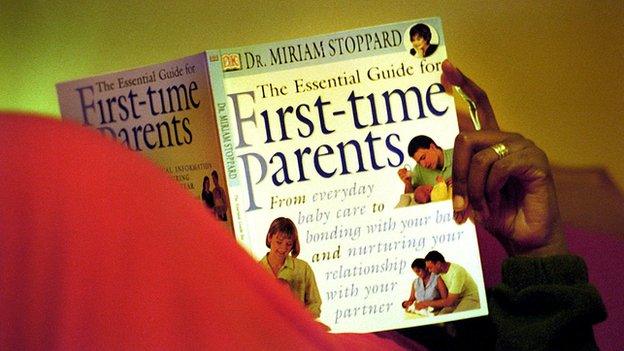Welsh Government parenting advice labelled 'patronising'
- Published
Children, parents and grandparents have mixed feelings over the advice
Have you ever been tempted to bite your child back, threaten to have the police take them away, use a put down or even tease them when they wet the bed?
According to Welsh Government advice described by some as "patronising", parents should not do any of this.
Others have praised the idea, but criticised Parenting. Give it time, external for being inaccessible to those who would benefit from it the most.
The Welsh Government said it was not intended as rules but rather ideas.
The campaign is being launched to "help parents better understand the benefits of positive parenting techniques", as the Welsh Government prepares to introduce legislation that would ban the smacking of children, said minister for children Huw Irranca-Davies.
But the government has been criticised for some of its more basic advice, including:
If your child bites you, stay calm. Don't smack or bite your toddler back. This will hurt your child and give them the wrong message that this behaviour is OK
If your child is wetting the bed, don't punish, criticise or tease them for it
In responding to unwanted or problem behaviour, avoid put downs. Try to encourage effort instead
Threatening your child with scary things like "the police will take you away" may make your child anxious and may lead to more unwanted behaviour, not less
Children aged 18 months and younger should not look at electronic screens at all
Screen time should be limited to one hour per day for children aged between two and five years old, and children and adults should avoid watching screens before bed.
What do parents think?
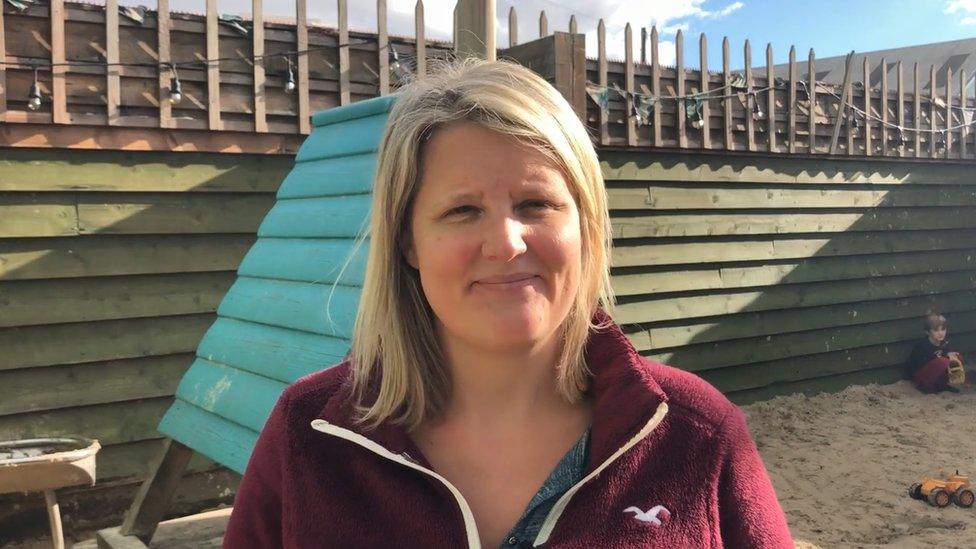
Kirsty Maniatt said parenting styles are unique to each family
Kirsty Maniatt, who has a son, 10, and daughter, eight, said: "I don't think there is a right or wrong answer - you do what you need to get through and what works best for your family."
Grandfather-of-seven Ken Frater said he appreciated that some people do not need advice on parenting while others do.
But Fran Caunt said general advice on parenting for the whole population was "dangerous".
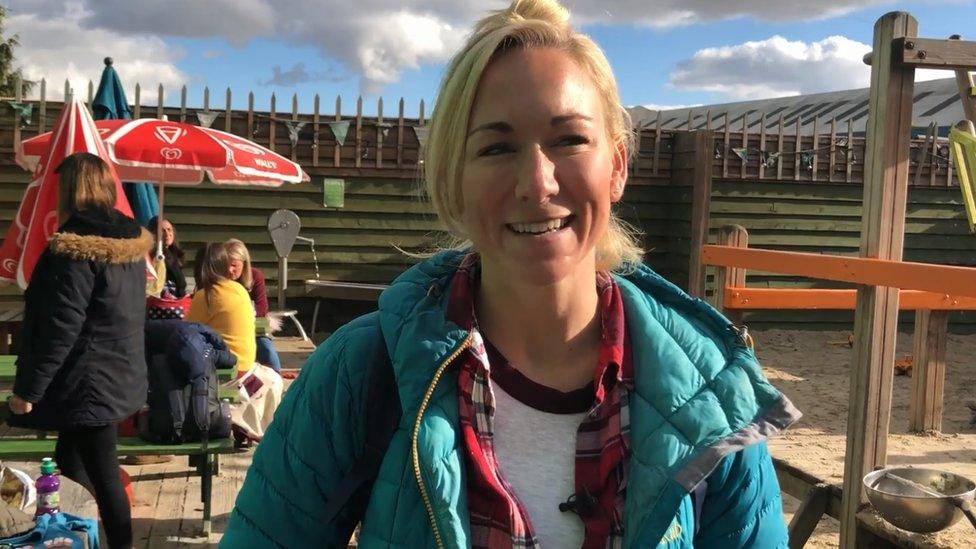
Fran Caunt believes a government suggesting how parents should parent is "dangerous"
"I think all parents have their different style of parenting and that is what makes us all different," Ms Caunt added.
"I think it would be very difficult to come up with a set list of dos and don'ts because every family is different."
Grandmother Jean Williams used the example of physical punishment to argue that government parenting advice was a good idea.
"If you smack children then the child will smack others back and also, if they bite a child. when they bite them then the child will learn to bite another child back."
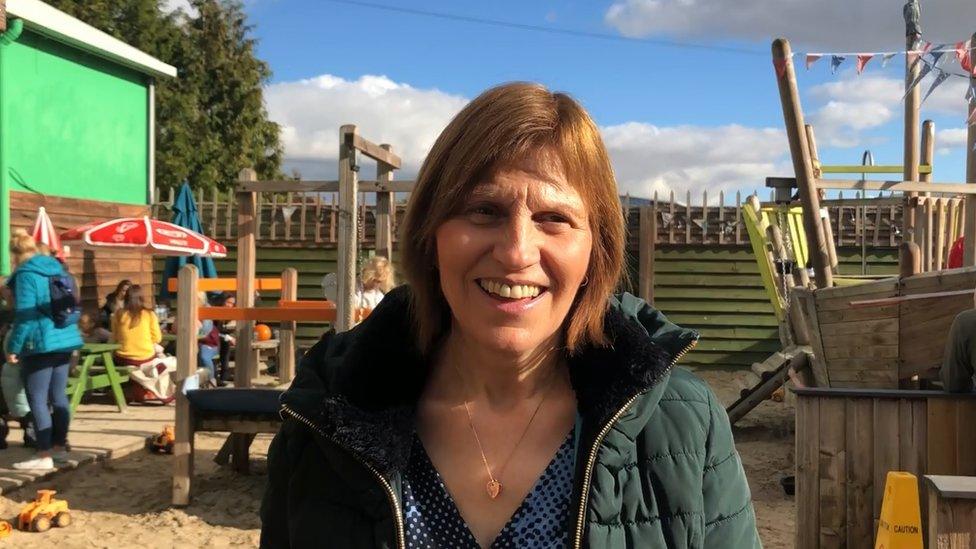
Grandmother Jean Williams is more sympathetic to the Welsh Government's advice
Charlotte Harding, a parenting blogger, external from Cardiff, praised the idea but said most parents already knew the advice because it was "quite straightforward".
"Sometimes parents can feel like 'why are they telling me this?' It can be patronising to people who are experienced, but a lot of parents don't know," she said.
Ms Harding believes the advice will be useful to some parents, particularly in more deprived areas, but said the "text-heavy" website was "inaccessible" to much of its target audience.
"Some parents who find it hard and don't know what to do, don't want to read the whole thing because it is so long," she explained.
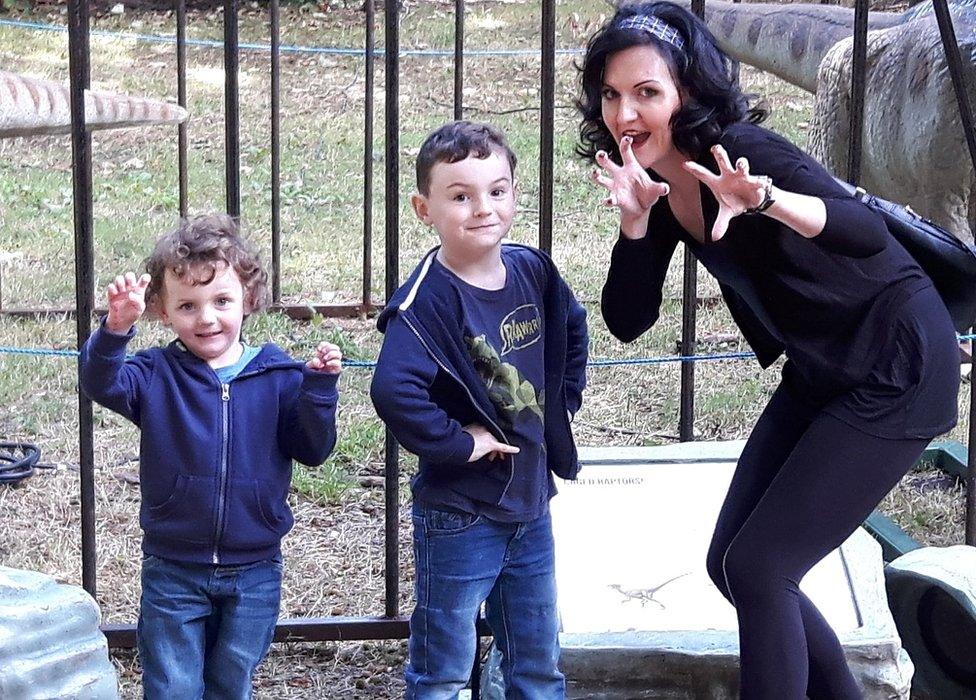
Parenting blogger Charlotte Harding with her sons Harrison (left), four, and Ethan, six
Responding to the criticism, a Welsh Government spokesperson said its website had been developed with the help of educational psychologists, health visitors and parenting experts.
"We recognise that every child and every parent is unique and the website is not intended as a set of parenting rules that must be followed," the spokesperson added.
"It is intended to give parents ideas so they can make decisions about what can work for their child and family."
The spokesperson added that it offers advice in "a range of materials" including videos, and will soon be publishing blogs and "vlogs" - video blogs - from parents.
- Published26 September 2018

- Published10 September 2018
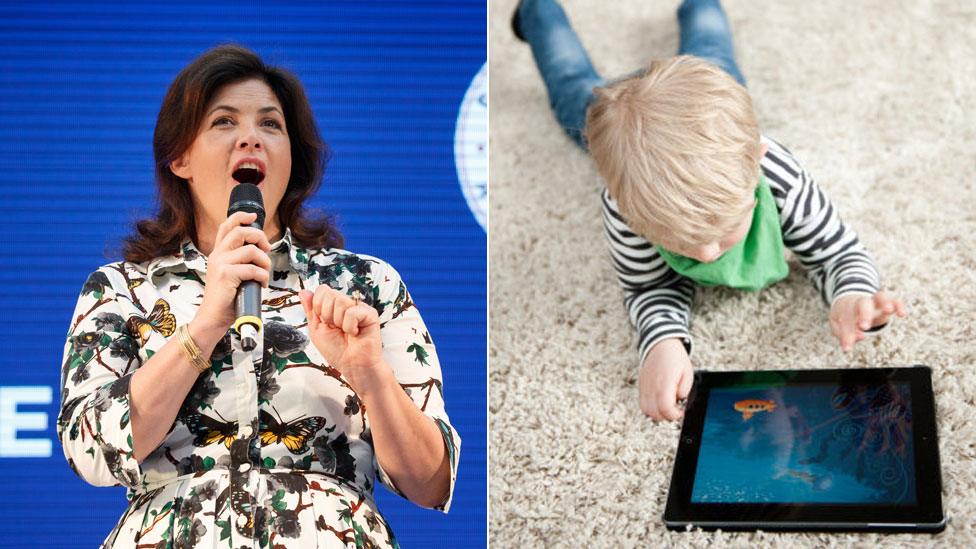
- Published15 June 2016
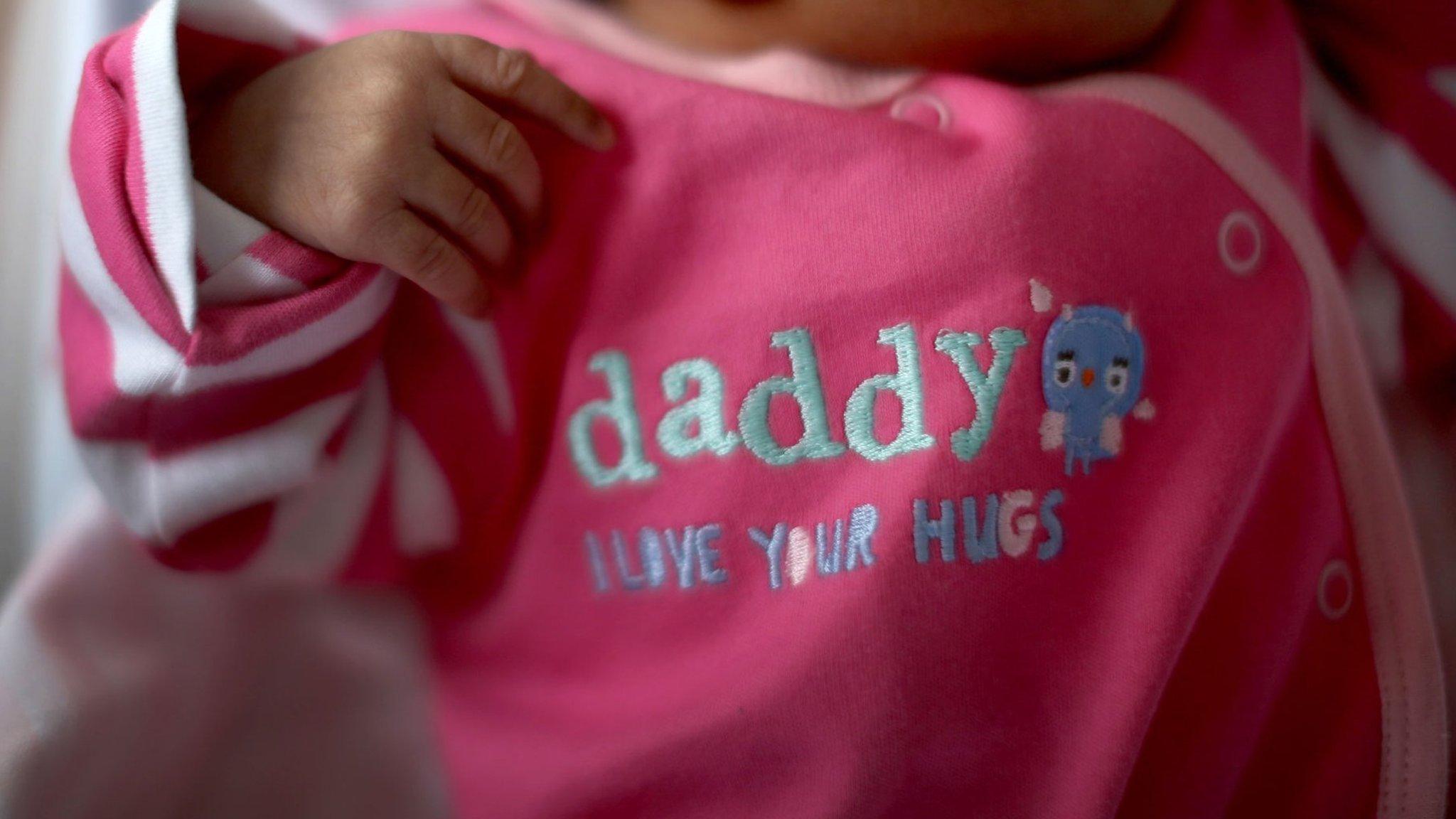
- Published1 May 2018
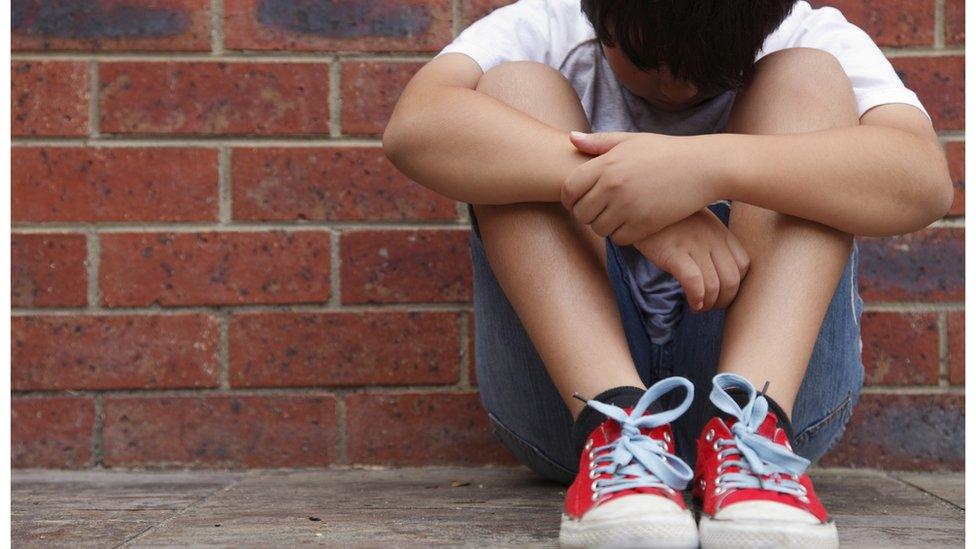
- Published16 February 2018
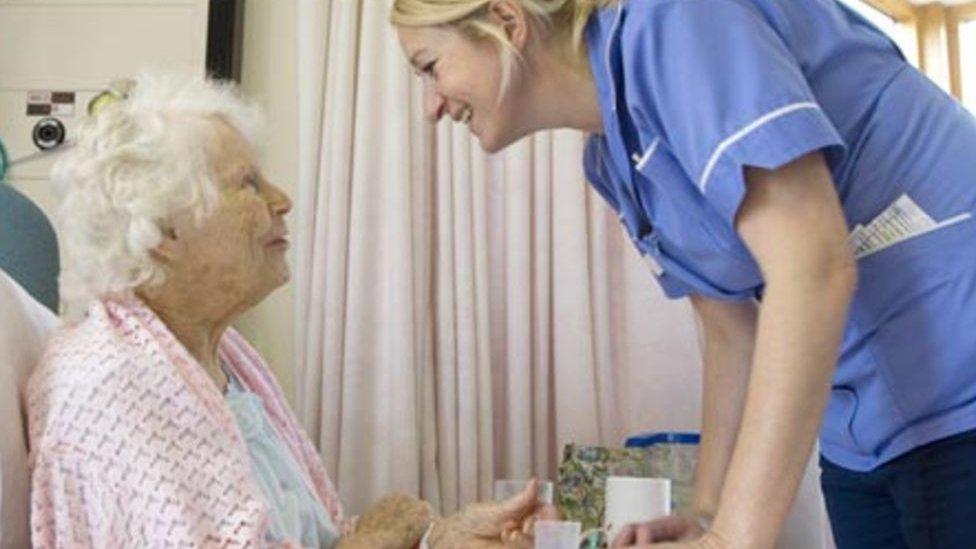
- Published4 May 2013
